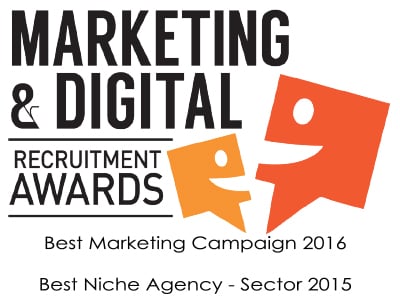Standing out from the crowd and voicing your aspirations for the world is challenging, daunting and met with criticism from all angles. Unfortunately, a flaw that humans are yet to eliminate is fear. Fear of the unknown and the uncertainty of a future they cannot hope to control. In many ways we are unimaginably tiny within this universe, yet so uniquely special. We have the knowledge and ability to go to space, are self-aware and in control of our own future. However, at the end of the day we are a small planet circling an average star, rotating in a massive galaxy. In the scale of the entire universe, our time on this earth passes in the blink of an eye, to inspire is to fill with an animating, quickening, or exalting influence on those around us.
‘Nothing in life is to be feared, it is only to be understood. Now is the time to understand more, so that we may fear less. Marie Curie.’
Discoveries and science are built upon previous knowledge and ideas. It is incredible that what is now common sense was once never discovered or thought of.
Daniel Hulme is the CEO of Satalia, a London-based company that provides Artificial Intelligence solutions. There is a lot of speculation and worry surrounding AI, but only time will tell which theory will be the closest to our future reality. For those who are taking the reins on accepting AI are inevitably signing that invisible contract to say they will explore the good and bad aspects of that reality.
“The development of full artificial intelligence could spell the end of humans…. It would take off on its own, and re-design itself at an ever-increasing rate. Humans, who are limited by slow biological evolution, couldn't compete, and would be superseded.”— Stephen Hawking
Daniel describes in his own blog, his path and journey of discovery that led him to Satalia. The beauty and addictive drug of wanting to learn more and know as much as possible. How often do we limit ourselves in what we can absorb about our world? In Daniel’s words; ‘Satalia has become a vehicle for anyone with the same aspiration. It is for people who want to learn as much as possible and use their superpowers to solve the hard problems and make the biggest possible positive impact.’
Isn’t that all we want? To be remembered in an undeniable future where it is so easy to be forgotten?
Daniel, I know you are used to being asked in articles, where did you come from and what is your work history, but more importantly instead – what decisions and moments got you to believe in your work and what you do?
‘I’ve never believed that I couldn’t do something. It’s incredibly naive, but also means that I don’t have any fear. I also know that I know nothing (as Socrates says), and this compels me to learn as much as I can about my subject so that I can make good decision.’
I imagine you are often met with criticism and queries regarding the way your company works and what you are working to achieve – what would you say to those people in one paragraph?
‘Nothing I create will be perfect, but I always have to ask myself “is it better than what happens now and is it the best thing I can do within the time and resources I have?”. It’s easy to criticise people’s ideas, but it’s hard to generate things that are new, so if you want to criticise do it constructively.’
Long term – when you look back on your life and your career, what do you want to see achieved?
‘I want to steer our species to one of cooperation towards a common goal, that increases the happiness and wellbeing of all living things.
I want to fight for the utopian world and fight against the Dystopian world presented in these short stories. If I help contribute as much as I can to that then I’ll be happy.’
Utopia: https://medium.com/@TheSolveEngine/2048-a-decentralised-world-339e5aab6968
Dystopia: https://medium.com/@TheSolveEngine/i-social-score-2a21d627f778
In your opinion alone, how far can you see AI going?
‘As Roy Amara noted, the impact of technology tends to be overestimated in the short run and underestimated in the long run.
In the short term, over the coming decade, I believe that AI will create jobs. In the long term, it will remove more jobs than it creates. I spend a lot of time thinking about the concept of Economic Singularity. This is the point at which AI will free people from their jobs and those people won’t be able to retrain fast enough to get another job, because AI will have taken it too. Most experts believe that this will happen in the next ten to twenty years, and that government and our economy aren’t prepared for it. Satalia’s purpose is to try to address these future problems. We need to somehow create a global infrastructure that supports those people that are going to be out of work.
There’s another concept called the Technological Singularity, where we build an AI smarter than us in every possible way. It will be the last invention humanity needs to create, because it will be able to think infinitely faster and better than humans. Many scholars predict we will birth a superintelligence around the middle of our century. It will either be the most glorious thing to happen to humanity or perhaps our biggest existential threat. My concern is that if we are not cooperating as a global species by the time, we create it then it will see us as a threat and remove us from the equation.
My purpose is to steer the world towards cooperation, and that means reinventing our political and economic models, and agreeing on a new objective function for humanity. The impulse for countries to increase GDP and companies to make profits means that more and more investment will be made to drive efficiencies and profits, which is leading us to a global economic and environmental crisis. We need a sustainable objective function, and we need to get everyone on the planet contributing to it, otherwise we may destroy ourselves. I don’t believe that governments are prepared or can act quickly enough, so I hope the change will come from business leaders who have a huge influence and responsibility to steer us towards a positive future.’
You work with some big names in the industry, are there industry sectors or brand types you feel would benefit the most from AI who are not looking into it?
Many CEOs feel they need to bring AI into their organization. There’s this fear factor that if you’re not on the AI bandwagon, then you’re going to lose out to competitors that are going to be eating your market, because they are using technologies to make decisions faster and better than you.
They may ask the Chief Information Officer: “What are we doing in AI?” And the CIO will then hire or try to hire data scientists, whose work represents a kind of proxy for AI. But data scientists only have a certain type of skill. They understand how to use statistics and machine learning to find patterns in data.
They’re not necessarily good at building production-grade systems that make decisions or that can adapt themselves. In the short run, you can use AI to remove the friction of mundane and repetitive tasks across the organization. If used correctly, this can absolutely change every business. But there’s a lot of hype out there and a lot of people investing in these technologies don’t know what they’re doing.’
Your company operates in a decentralised manner, what are its pros and cons? On the surface it sounds incredible – but is it providing too much freedom and too much trust into your team?
‘One of Satalia’s aspirations is to build a platform that allows somebody to boot up a company or an organization, and then attract people from anywhere in the world to contribute to a particular product or service. I have a personal mission to try to get the world cooperating as a global community because I don’t believe that our current economic and political systems are sustainable for the planet.’
‘In some respects, the biggest threat to a company like Satalia is the limitation of its own internal structure. It’s incredibly complex to build a decentralised organisation where all the different business function come together towards a common goal, and operates without managers, etc.
We are a long way from making this work effectively in Satalia. In the future, the success of Satalia will be to remove the concept of a centralized organization, and that means completely decentralizing Satalia itself. But that’s OK. If I could create a world where anybody could boot up an idea and get people to surround it and drive it forwards, then that’s a world that I want to live in. That’s why I’m trying to operate Satalia as a self-organising company. I want to build a platform to create a decentralized world and be an exemplar for what amazing innovations you can build if you harness and empower amazing talent.’
Was there ever a moment in your journey that you thought this was not going to work when building Satalia?
‘Every day. But I’d rather fail at trying to do something special than just follow what’s the status quo. For companies looking into AI solutions – in one sentence, what would be your pitch?'
‘No one is really doing AI right now, but those companies that adopt it will be the ones who win, so I’d encourage you to get there first.’
You have extensively travelled and even admitted your journey at points was a selfish one to find out what you wanted to do. Would you recommend that for other professionals in a similar situation?
‘It’s important for every individual to have a goal. It doesn’t have to be a 5-year plan, and even if it is then it will likely change, but even micro-goals are important; i.e. what is it I want to achieve over the coming three months.’
Your greatest accomplishment in your life so far – can you pinpoint it down to one that really stands out for you?
‘Satalia’s culture is very special, and I’d like to think that it’s an extension of my personality and values. If Satalia sucks then that’s because I suck. I am overwhelmed with happiness daily when I see amazingly talented people growing, thriving and building things that our clients love and that are having a positive impact on society.’
We pass through this world but once. Few tragedies can be more extensive than the stunting of life, few injustices deeper than the denial of an opportunity to strive or even to hope, by a limit imposed from without, but falsely identified as lying within. - Stephen Jay Gould




-1.png?width=160&height=84&name=ECA23%20Socials%20Email%20FBBest%20eCommerce%20Support%20Business%20(less%20than%2025%20employees)-1.png)
What do you think?
Share your thoughts on this post - whether you agree, disagree or have your own insight to share, we want to hear from you!